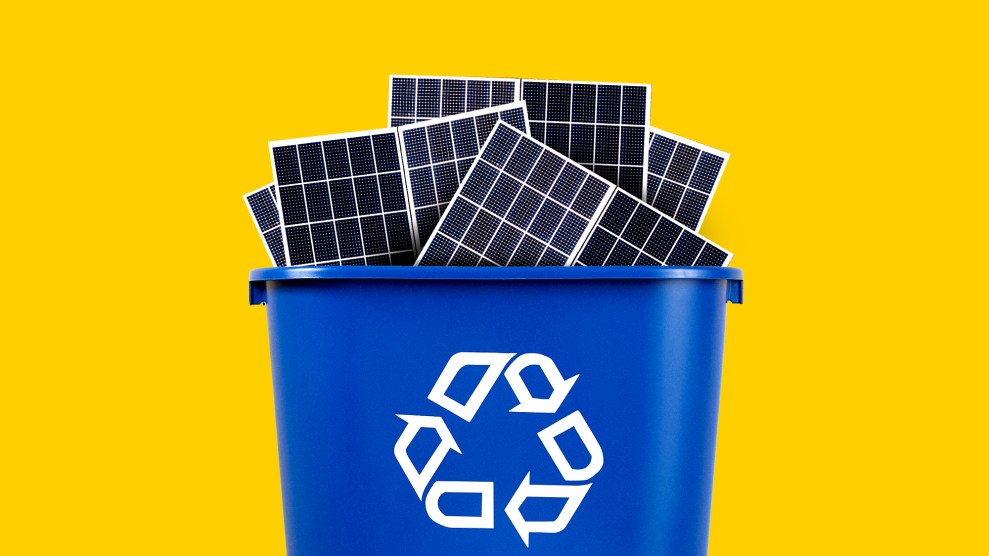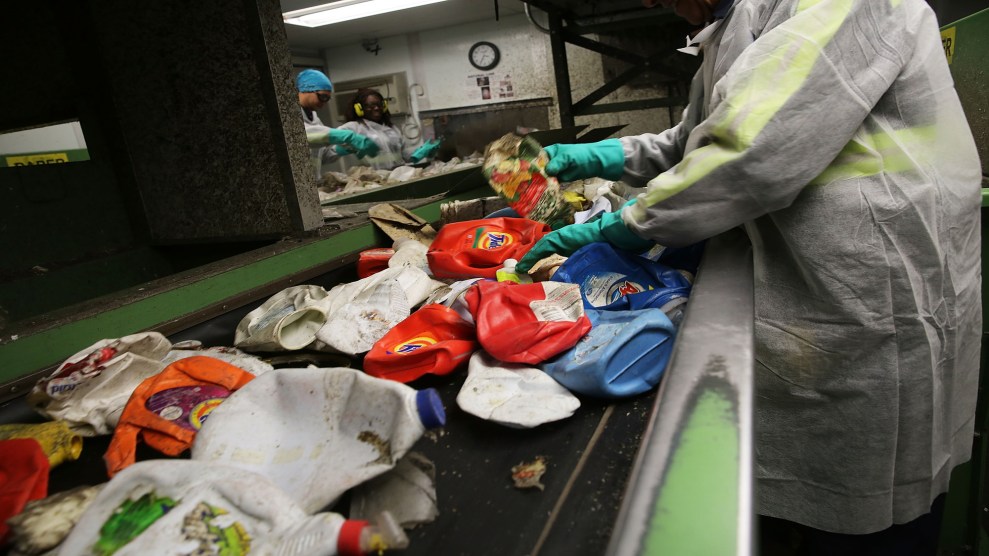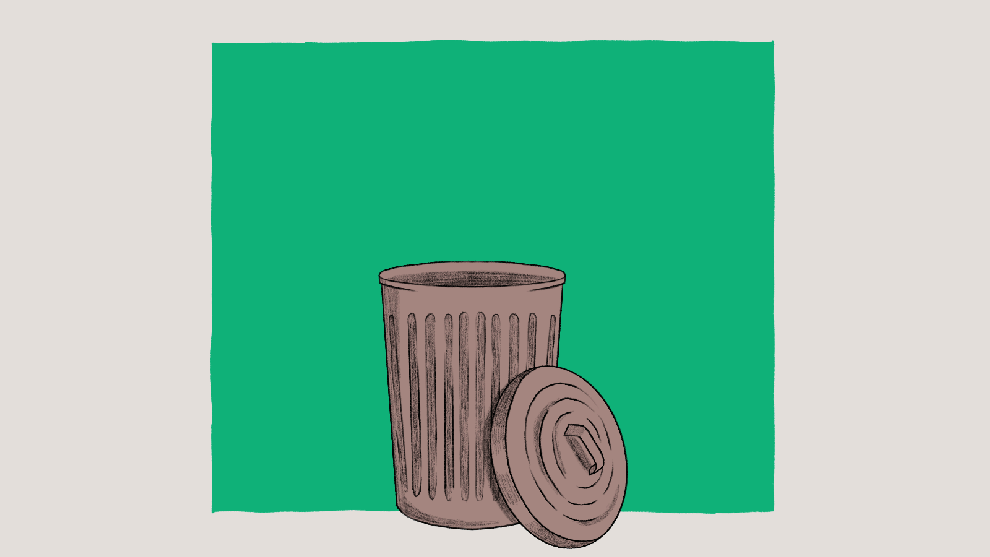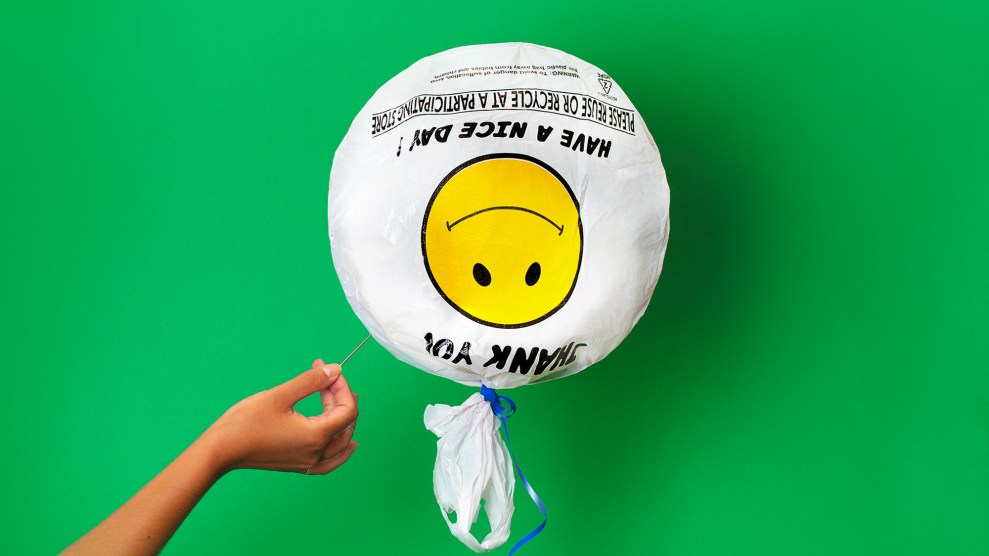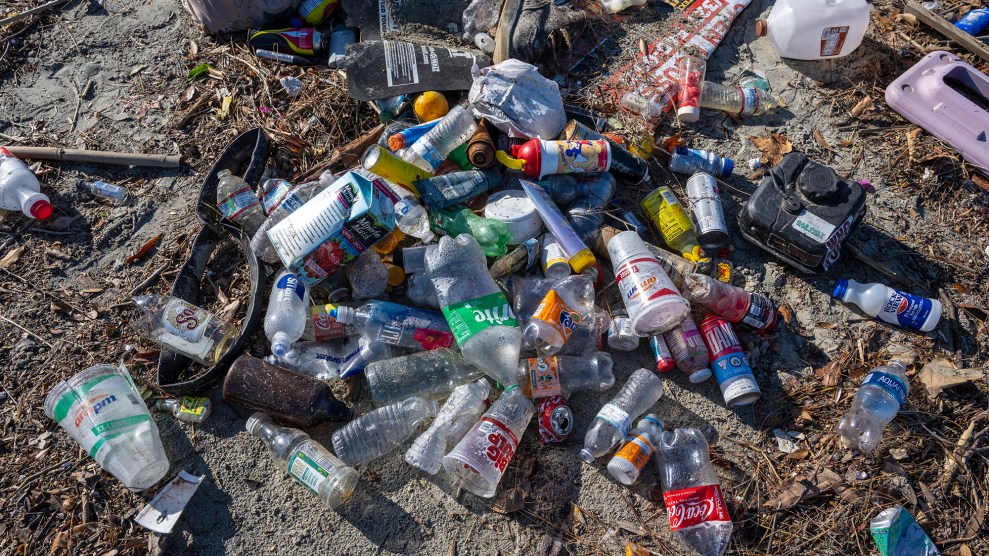
Mark Rightmire/MediaNews Group/Orange County Register/Getty
This story was originally published by the Guardian and is reproduced here as part of the Climate Desk collaboration.
The triangular loop of arrows that has been the universal symbol of recycling for the past five decades could itself end up being binned in the US, with Joe Biden’s administration mulling whether it is misleading to the public.
The “chasing arrows” logo, designed by a college student for the first Earth Day in 1970, has become ubiquitous on everything from cartons of milk to shampoo bottles as a way to nudge users to recycle packaging rather than discard it.
But the widespread use of the symbol on products that are not routinely accepted for recycling is helping stoke “consumer confusion about what is recyclable and/or compostable” and is leading to “deceptive or misleading” claims on packaging, according to the US Environmental Protection Agency.
The EPA said it is regularly bombarded by public queries about what is able to be recycled, and called for the recycling logo to be ditched from whole classes of plastics, in official comments lodged with the Federal Trade Commission. The FTC is currently updating its rulebook on the sorts of environmental claims that companies can accurately make about their products.
At issue is the use of the logo along with the “resin number” of different types of plastics. Resin one and two plastics, such as bottles and jugs, are the most easily recycled products, but those marked with numbers three to seven, categories that include plastic bags, styrofoam and plastic trays, are typically not recycled and are instead sent to landfills or burned.
The placement of the chasing arrows symbol upon these hard-to-recycle single-use plastics “does not accurately represent recyclability as many plastics (especially 3-7) do not have end markets, and are not financially viable to recycle,” the EPA said in its comments.
A new rule was needed, the agency said, to help clear up this confusion. In 2021, California passed a law to restrict the use of the logo to avoid misleading claims about recycling. Environmental groups are pushing for an end to the blanket use of the logo, too, claiming that its use amounts to “greenwashing” by companies.
“Instead of getting serious about moving away from single-use plastic, corporations are hiding behind the pretense that their throwaway packaging is recyclable,” said John Hocevar, oceans campaigner at Greenpeace, which has previously released research finding that most types of plastics are not recycled in the US.
“We know now that this is untrue,” he said. “The jig is up.”
Only around 5 percent of plastics are recycled in the US, a proportion that has been declining since China announced it would no longer be accepting unwanted plastic waste from western countries in 2018.
American households produce around 51 million tons of plastic waste a year, more than any other country, with much of that either dumped in landfills, incinerated or littered, often ending up in the ocean.
Recycling isn’t itself a panacea to this situation, the United Nations warned in a report this week. Excessive packaging and single-use plastics need to be eliminated from use, the report found, which would be among a series of steps that could slash global plastic pollution by 80 percent by 2040.
